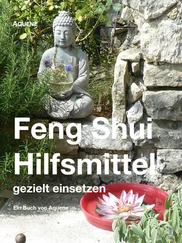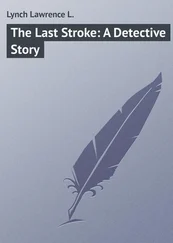The sun glared in at the windows, as did staring locals and heavy-eyed bullocks. The car’s air-conditioner, cranked up to full blast, fought a losing battle to keep the interior comfortable.
After half an hour’s driving without incident, his passengers started to relax. Not being a conversationalist, Wong liked having a definite task to occupy himself with, and refused all offers of relief at the wheel.
Sinha was quite the opposite. His tall frame draped languidly back over the front passenger seat (which seemed to wilt under his weight), he talked endlessly about people he had met, and seemed to be able to continue indefinitely with minimal reaction from his listeners.
He told his half-listening audience several stories, starting with one about the time he went in search of a levitator who was rumoured to live in the hill country near Simla in northern India. He said he had made copious inquiries before setting out, to make sure the man was a genuine defyer of gravity, and not one of those yogic flyers who bounce cross-legged on mattresses, while disciples take carefully timed photographs.
‘I was repeatedly assured that he was the real thing, a genuine floating man, so eventually I set out, and took a sixteen-hour bus ride to the foothills of the mountain where he lived. From there, it was a case of questioning the locals until I found someone who knew the man I wanted. But he refused to guide me up the mountain until I gave him a large sum of money. This I did. I would have given him money afterwards anyway, because I believe in the distributing of my largesse to the poor back in the country of my forebears. What a strange word that is, forebears. Does it have anything to do with bears? I suppose not. Anyway, the man wanted it up-front, so I gave it to him. He scurried away to put it in the bank, which means, I suspect, he dropped it in a hole in the earth under his bed-the poor are very predictable, I’m sorry to say, and predictability is one of the great shortcomings of the human race. In fact, I would go so far as to say that one of the reasons the poor are poor and remain poor is because they behave entirely predictably. It is only the man who breaks free of the rut who has a chance of improving his circumstances. Otherwise one is like a bullock, pulling a plough along the same furrow, year in, year out. Indeed, you would think that the poor in northern India would realise this, because they have an example of bullocks trapped in identical ruts right in front of their very eyes, all year-’
‘The levitating man?’ This was Joyce. ‘Can you go back to him, please?’
‘Oh yes, sorry, I was digressing. I’ll get back to the point. You’ll have to forgive me, but I have always tended to wander off on a tangent. Not that I’m the worst digressor I know. I had an uncle, a politician in Uttar Pradesh, who was once asked to give a ten-minute vote of thanks before a meal. What with his digressions, his speech lasted almost an hour and the meal was ruined. The first bits cooked had gone cold and congealed, and the bits still on the heat had burned. Yes, yes, the levitator.’
Sinha rearranged his long legs and draped one arm behind his chair. ‘I went into the deep, dark candle-lit cave where the man was supposed to live-my guide refused to come with me-apparently you were not supposed to approach the levitator unless you were an acolyte who had done years of training with him. I found a perfectly normal man sitting at a table. It was a high, Western-style table and he sat there as if he was about to eat a Sunday roast beef lunch. Which of course he wasn’t, because you don’t eat roast beef in India. Not unless you want to get into big trouble. Which I did once, and there’s a tale worth telling. It was when I was about twenty, and had just left college. But I’ll tell you that one afterwards, shall I? The levitator. He was sitting at a table, as I say, upon which there were candles and a shrine with several gods in it. Saying his prayers, no doubt. We had to try several dialects before we found one we both shared, and soon we were chatting like we had been friends since the egg. I stood there, bowing respectfully, and he sat there with his hands together. We talked about all sorts of things, about mysticism, about religious leaders we both respected, about our favourite foods.
‘Eventually, I had had enough of polite chit-chat and asked him directly about the levitation, and he said, yes, he could do it. But when I asked him to demonstrate, he just changed the subject. I brought the subject back again. He changed it again. I could not persuade him to agree to lift himself even an inch off the ground for my benefit. He just sat there smiling at me. When I asked again, rather more forcefully, he gave an interesting reply, which I will always remember. He said: “Such skills are not given to us for demonstrations, but for high purposes.” So I replied, “Showing a traveller your skill so that he can spread the word to thousands outside is a high purpose, is it not?” And he said, “Your idea of a high purpose in not my idea of a high purpose. A high purpose can be to rise in the air to glorify the gods, even if there is no one watching except the gods themselves. Indeed, that is the highest purpose, because the glory is for the gods alone.”’
Sinha bit at his thumbnail and shifted slightly in his seat, causing it to creak alarmingly. After a brief pause, he continued. ‘I took this as a cop-out, although I did not say this to him, of course. It seemed to me that he was saying that he would only levitate when no one could see him do so, which meant that there would never be any proof. Anyway, there was still something tangibly holy about the man, so I remained polite to him, and thanked him. “My visit is over,” I said, then I bowed and took my leave. I was just walking away, when I thought of something. He said a high purpose can be to glorify the gods. He was glorifying the gods even then, worshipping the shrine on his table. I suddenly thought… I was about 20 or 30 yards away. I spun around and then stooped slightly, to look under the table. There was no stool. There was no chair. The man was sitting on nothing, his crossed-legs and bottom floating about 2 feet off the ground. He had been levitating all along! I started to walk forwards again, but he spoke again. “Your visit is over,” he said. Then he blew out the candles, and the cave was plunged into darkness. I could not see 1 inch in front of my face. So I stopped and called out for him to light a flame. But there was silence. I walked back out towards the light. I never saw the man again.’
For a moment Sinha paused, his eyes fixed on a place far distant. ‘Getting back from there was another adventure. I imagined, that I, too, could levitate. So I decided to try it, while I was on the holy mountain, close to the influences of the levitator. Mountains, for some reason, always seem holy. Even in the Christian Bible, you will note how Moses and Jesus went up mountains to see their god. It is something to do with the idea of vastness and stillness, of course, something that can best be appreciated by a visit to the Himalayas, which I first visited as a boy of nine…’
After half an hour, Joyce, who was still sitting in the back, retreated into music. Whenever Sinha turned around to emphasise a point, she would just nod sagely. He never seemed to notice the little earphone wires which ran from her ears to her bag.

There was an exhausting sameness about the villages through which they travelled, and all three were visibly glad when they reached the gate of the park and were met by a small, fuzzy-faced, pop-eyed man by the name of Icksan Dubeya.
‘Go up to the house first,’ he said. ‘There you meet the owner, Sulim Abeya Tambi. He will explain to you what he wants.’
Читать дальше













